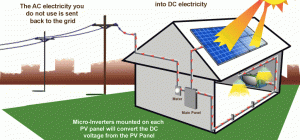As per estimates, majority of the world population will roost in urban environment by 2050. With the advance in technology, standard of living has improved a lot, and hence, more people are moving to cities in search of better employment opportunities. This situation has given rise to the need of erecting smart cities in order to meet the exigencies of present day life.
Smart city is a concept of integrating multiple information and communication technology (ICT) solutions in order to manage a city's assets including schools, hospitals, libraries, transport systems, power plants, local departments information systems, law enforcement etc. The objective of making a city smart is to improve quality of life by using technology, which is moulded for improving the infrastructure (institutional, physical, social and economic) and allowing the city administration section to interact directly with the community.
Hence, with the vision of changing the face of Indian cities by providing an ideal urban ecosystem, Government of India has put forward Smart Cities Mission, which is envisaged to develop hundred cities all over the country, making them citizen friendly and sustainable. Smart cities are expected to be armed with basic infrastructure and attributes like assured water and power supply, sanitation and solid waste management, efficient public transport and IT connectivity, e-governance, citizen participation and safety of its citizens.
Technology is used to step-up quality, performance and optimum use of resources and to improve interaction between citizens and government. Keeping this in mind, many smart city applications are developed, which are designed to respond to the challenges of present day life like access to education, pollution reduction, improved health, resource management, energy efficiency and conservation, public safety etc.

The possibilities of technology are immense:
High-tech road networks: "Time and tide wait for no man". For the optimum use of time in a productive way and for the smooth movement of people and goods, the moving path should ensure the facilities. Hence, road network comprising of high-tech roads, flyovers, subways, over bridges etc. enable faster physical connectivity.
Parking facility and apps: Even with high-tech roads, what if the parking facility is down? As part of the government's road construction programmes, many existing roads have been widened. Despite this, Indian roads are crowded with parked vehicles; no matter if it is national highway or village road. Hence, many cities are providing multi-level parking facility. An app too can direct the drivers where the nearest available parking space is. This can save time of commuters and the service provider, gas, emissions and money etc. This enables easy flow of traffic as well.
Public Transport: This is the era of bullet trains. Hence, more public transit service, high-speed trains, metro train service and bus rapid transit facilitate citizens to get physically connected fast. For this, there has to have an efficient arrangement for traffic management.
Waste management systems: As a move towards total sanitation, various tools can be used to sort out recyclable materials from among the garbage heap. Systems can be developed for separating green wastes and plastics. Along with this, those who throw garbage in the public space can be charged by installing CCTV camera in all main areas.
Water-recycling Systems: It is a common knowledge that cities spit dirty water. When the availability of fresh water is very limited, there should have enough arrangements for recycling and preserving water.
Wi-Fi facility: For quick online connectivity, Wi-Fi connections can be provided everywhere including subway stations and on trains. As every citizen is entitled to access all vital information, this can be a step ahead for emergency alert and crisis response, no matter how trivial it is.
Data Bank: Police and security forces use data to monitor and prevent crime. NATGRID is developed as an integrated intelligence grid connecting databases of core security agencies of the Indian government to collect intelligence data.
Charging stations: As the planet is moving towards a sustainable environment, international forums are overhauling for the reduced use of fuels that spur global warming. Hence, instead of petroleum-enabled transport system, electric vehicles can be preferred. When this is in vogue in western countries, India is on the race to catch up to reach there. Therefore, there is a need of setting up charging stations for these battery-enabled vehicles.
City guide apps: For boosting up tourism, this app enables providing information about cardinal locations, museums, parks, libraries, landmarks, public art galleries, markets, restaurants, entertainment etc.
As a dream project of Modi government, Smart City Mission is envisaged to drive economic growth, thereby improving the quality of life of people, by harnessing technology that breeds smart outcomes.



![Top 20 Things to Recycle and Reuse Today [Infographic]](https://lerablog.org/wp-content/plugins/wp-thumbie/timthumb.php?src=http://lerablog.org/wp-content/uploads/2014/11/Top-20-things-to-recycle-and-reuse.jpg&w=300&h=140&zc=1)



